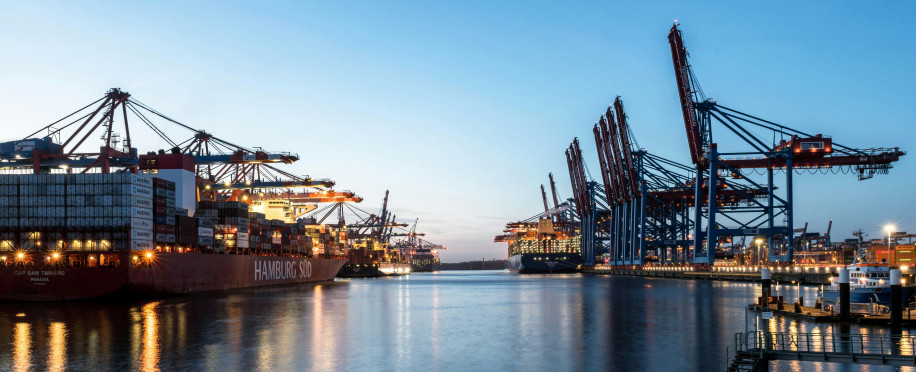Copyright © 2025 lmitac.com All Rights Reserved. Contact - Terms and Conditions - Privacy Policy - Quality Policy - Become an instructor - Vacancies - Sitemap
London Maritime Academy is a trade name for London Premier Groupversion: 2.9.0
London Maritime Academy is a trade name for London Premier Group

Posted on : 5/17/2024, 2:55:39 PM
Last Update : 5/17/2024, 2:55:39 PM
Have you ever wondered about the role of pilotage in the daily operations of a port? If you're in the maritime industry, you probably have. Pilotage is not just about maneuvering ships. It has far-reaching economic implications too.
In this article, we will explore the economic impact of pilotage on port operations, so read along
So, what is pilotage, and why is it relevant to you? Pilotage is the term used for the practice of using the highly-skilled and licensed maritime pilots to assist the vessels to go through the complicated or foreign landmarks like waterways, lakes, harbors and ports safely.
To put it in plain terms, pilotage is where independent pilots provide a service of navigating a ship through harsh sailing terms for a certain commission or fee.
These experts have an experience sailing waters that no one else has, they can give advice on local navigational hazards, tidal patterns, and port regulations, thus, they can make sure the ships will pass safely into and out of the ports.
The pilotage process is very important for the effective navigation of any ship, the reduction of the chance of accidents, and the protection of the environment from possible disasters. A pilot is the master of their aircraft, and their expertise cannot be underestimated. Without their guidance and knowledge, the consequences could be catastrophic, and the cost for the shipping industry would be enormous.
The International Maritime Organization (IMO) board has not established any compulsory rules for port authority what it comes to pilotage requirements and standards. However, it has made significant strides in this area by adopting Recommendations on training and certification and operational procedures for maritime pilots other than deep-sea pilots (Resolution A.960(23)) in 2003.

While the IMO does not mandate boarding pilots for trips, the assistance of an experienced pilot maintains the security during your cargo transport, from the moment your ships dispatch from a harbor till it reaches its destined berth, but there are some other benefits to pilotage, these are:
Pilotage is the key to the safe and on-time movement of a ship within port limits. As a business owner, the delays in ship arrivals and departures can lead to great economic damage, for example, missed schedules, the increase of operational costs, and the potential loss of business opportunities.
Through the expert advice of pilots, you can reduce delays and make sure that your vessels sail safely and efficiently through the busy waterways.
So if you're facing any difficulty and are worried about your ship's safety, you can it's recommended that a private pilot is employed to guide the vessels to safety without harm.
Even a minor accident or incident can lead to huge economic losses for your business, damage to ships, infrastructure, and cargo as well as the cost of environmental cleanup.
Pilotage services are the reason why such accidents do not occur, your economic interests are protected and your company is no longer exposed to financial setbacks.
A single incident can have severe and long-term consequences, for example, oil spills, damage to sensitive ecosystems, and the release of hazardous materials.
Besides, these incidents can be very costly to the cleanup and also can be the reason for your company's reputation to be damaged.
Ports are key links in the marine supply chains, and the delays or disruptions they cause can have the ripple effect all over your supply chain.
Pilots are qualified to navigate berths and harbors and they're good at dealing with port authorities or coast guard personnel. Through efficient vessel piloting as well as vessel tracking you can ensure the safety of your cargo, cut down the disruptions, and be at the top of your game in the world market.
Pilotage is not only about guiding ships but it is also a strategic element of maritime operations. Here’s how you can leverage pilotage in your business strategy:
The knowledge of the costs and benefits of pilotage will enable businesses to bargain better terms with shipping lines and ports. This is a great help for businesses that are dependent on regular shipping services.
Through the use of efficient pilotage services by your logistics providers, you can eliminate the possibility of delays and accidents. This consistency can be a powerful selling point when dealing with the customers downstream and managing their expectations.
Smooth pilotage cuts down the fuel use and emissions as ships are less time idling. Attention to this sector can be a boost for your company's sustainability reputation, which is now more and more a factor for the consumers and the regulators.
There are Maritime Safety courses in dubai equipped to teach you all about pilotage, how to get pilots and how to negotiate with them to get the best out of the deal, check those out and learn more to master your first pilotage deal.
In conclusion, the economic impact of pilotage on port operations cannot be overstated. While there are costs associated with providing pilotage services, the benefits far outweigh them. Remember, a well-run pilotage service is not an expense; it's an investment in the economic health of your port.